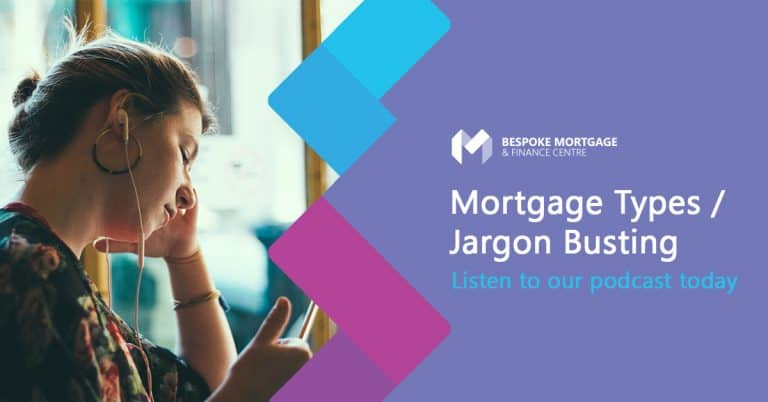Having your mortgage application declined can seem like the end of your property-owning dreams – but it’s not game over yet. There are lots of reasons why a mortgage lender might have declined your mortgage. It can even happen after you have a mortgage agreement in principle.
By understanding why a lender has declined your application, you can take steps to get back on track.
Most common reasons for being refused a mortgage
In general, you will be declined for a mortgage if your history with financial transactions, or something about your online information, makes your lender nervous. Understandably, they want to be certain that you will repay your mortgage reliably.
Here are some of the most common reasons for being refused:
- You’ve recently missed or made late payments on a loan, credit card or other finance
- There are mistakes on your application form. An incorrect address is a common one
- You’ve defaulted on a loan or received a County Court Judgement (CCJ) in the past six years – meaning you have a poor credit history
- You’ve made too many credit applications in a short space of time – which affects your credit score
- You have taken out a payday loan in the past
- The lender believes you can’t afford to make your repayments based on your monthly income/outgoings
- You’re self-employed or a contract worker and your income seems too variable
- You’re not registered on the electoral roll – this is important for proof of your identity and address
- You may not meet the lender’s criteria for the type of mortgage you’ve applied for
- You’ve recently changed jobs
How can I be declined if I had an Agreement in Principle?
Sometimes mortgages are declined even after an agreement in principle (AIP) or Mortgage in Principle. Remember that an Agreement In Principle isn’t a guarantee of a mortgage, it’s simply an indication of how much the lender thinks they will be able to offer you. The actual mortgage offer will be subject to the lender doing the relevant background checks once you submit your full mortgage application. So having a mortgage declined after AIP is actually more common than you may think.
Does being declined affect my credit score?
Fortunately, being refused a mortgage won’t directly harm your credit score. The fact that you applied for a mortgage will appear on your credit report, but there won’t be any record to say whether it was approved or declined.
It’s important not to rush into applying for other mortgages, though, as each application will show up as a ‘hard search’ on your record. Too many of these in a short period will damage your credit score.
What should I do if I have been declined?
If you’ve been declined for a mortgage, the first step is to find out why you were refused. Contact the lender and ask for the reason. Although they might not agree to share this information, it could be something very simple that you can address straight away.
If this doesn’t shed light on the situation, take a look at your credit score. The main credit agencies are Experian, TransUnion and Equifax, so choose one to explore your record and find out where the problem lies. If something is incorrect, you can contact the company and ask them to update their records.
If bad credit looks like it’s the root of the problem, there are other ways to make yourself more attractive to lenders and improve your chances of being accepted. The simplest route is to get as big a deposit together as possible – but, of course, this isn’t easy. Shared ownership may also be another option. You can also take time to improve your credit before applying for a future loan.
On clicking the third-party website links, you will leave the regulated site of Bespoke Mortgage and Finance Centre Ltd. Neither Bespoke Mortgage and Finance Centre Ltd, nor Sesame Ltd, is responsible for the accuracy of the information contained within the linked site.
How can a Mortgage Broker Help?
It’s well worth speaking to a Mortgage Broker at any point in your home buying journey. In fact, by starting out with a broker you can usually avoid being declined – as the broker will only put you forward for mortgages that will accept you. This is a key advantage: a broker or mortgage advisor will have vast experience of all kinds of financial situations and the lenders that are happy to accept different kinds of clients.
They will spend time getting to know you and your financial situation – and will recognise anything that might make it difficult for you to find a mortgage. They will also be able to recommend mortgage providers so that you are approved next time, or suggest other ways you can achieve your home owning dreams.
YOUR PROPERTY MAY BE REPOSSESSED IF YOU DO NOT KEEP UP REPAYMENTS ON YOUR MORTGAGE
Remortgaging
If your current mortgage deal or term is coming to an end, make sure you explore your options, because your existing lender may no longer

Mortgage Types/Jargon Busting
Mortgage Types | Bespoke Mortgage & Finance Centre What types of mortgage are there and how do you choose? There are many different kinds of

High Net Worth Mortgages
What is High Net Worth? The Financial Conduct Authority regards a high net worth application as a client who earns a minimum of three hundred
Get In Touch
Protecting your family is one of the most important things you can do. It is for this very reason that impartial advice is critical from qualified advisers…
